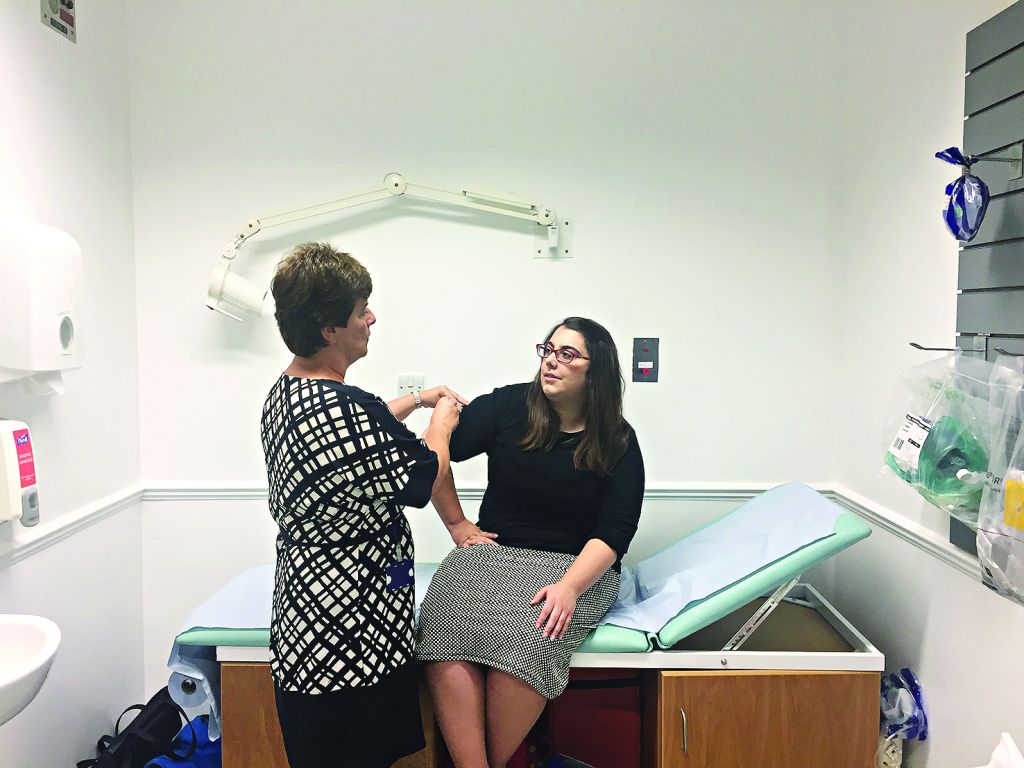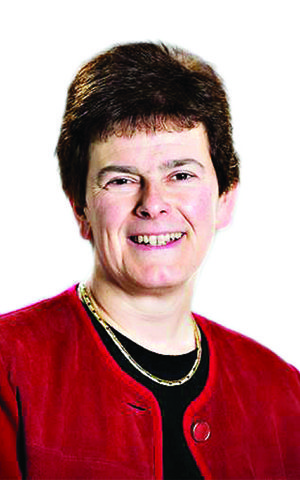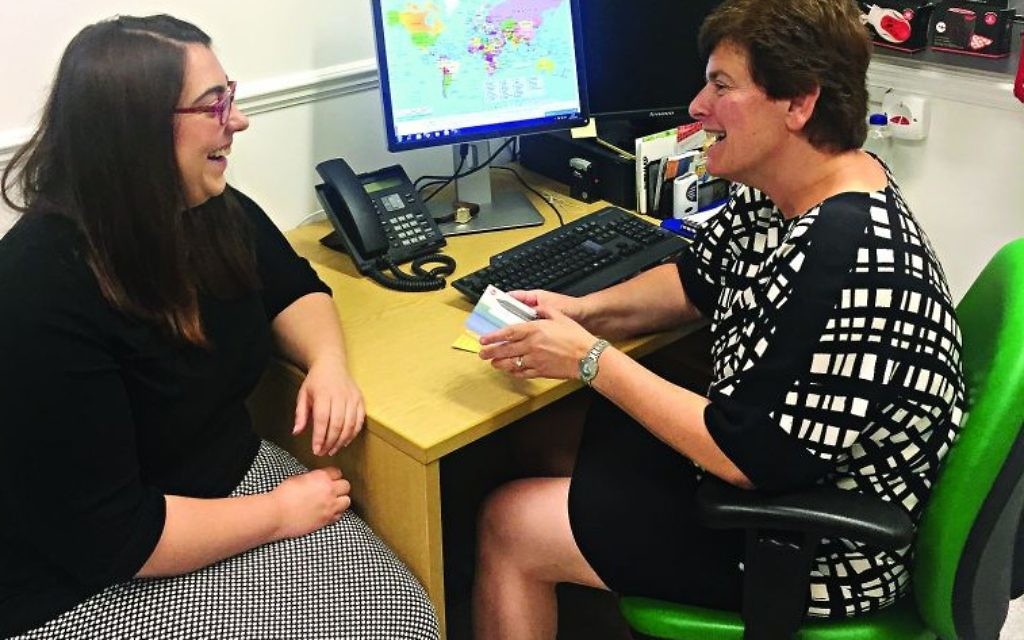Before you travel, check in with Dr Zuckerman
Dr Jane Zuckerman from the Royal Free London Travel Health and Immunisation Clinic gives her travel health tips
With the internet giving us unprecedented access to far-flung destinations, a quick glance at online booking companies or a call to a travel agent is often all we need to make our feelings of wanderlust a reality.
But we can often overlook the most important element when travelling: our health.
Dr Jane Zuckerman, consultant and clinical lead in travel medicine at the Royal Free London Travel Health and Immunisation Clinic, has practised travel medicine since 1995, helping more than 10,000 people a year to travel safely, and winning awards along the way, including the UK Hospital Doctor of the Year Award in 2001.
According to Zuckerman, it’s crucial to start thinking about protecting yourself medically months before you embark on your trip.
“Travel medicine is all about preventing illness in people who travel and the best way to guard against any tropical disease would be to seek travel health advice from a travel clinic at least four weeks before travelling,” she says.
“This way, a travel health practitioner can discuss the risk of the relevant tropical disease to which a traveller may be exposed.
“The ability to travel the world is no longer a luxury and the important considerations to take into account when travelling are the safety and security at the destination and to seek travel health advice to understand if there are any specific health risks for the planned itinerary.”
One of the biggest misconceptions about travel medicine is that it’s really costly. However, Zuckerman says, there are several important travel vaccines that are available on the NHS, including diphtheria, polio and tetanus – a combined vaccine – as well as typhoid, cholera and hepatitis A, including when given as a combined typhoid or hepatitis B vaccine.
“These vaccines are usually free because they protect against diseases thought to represent the greatest risk to public health if they were brought into the country,” Zuckerman says. “Travel vaccines that are available privately include hepatitis B when not given as a combined hepatitis A vaccine, Japanese encephalitis, tick-borne encephalitis, meningitis vaccines, rabies, tuberculosis (TB) and yellow fever.”
Another misconception is that travel vaccines can be uncomfortable, something Zuckerman handles regularly, using a number of ways to calm patients who are wary of needles.
“I sometimes see patients who are anxious, but cope with this by being very sympathetic, very gentle, doing certain things to prevent fainting or panic attacks, not rushing the appointment and by applying the art of subtle distraction when I give an injection,” she says.

“Despite several patients telling me, I never realised that I have a gentle touch until the time my mother – who always told me the truth – told me I could give her injections any time.
“I have developed a reputation for being able to help patients with needle phobia have vaccinations, both for travel and general vaccinations. Having a good experience following vaccination is invaluable to people who have needle phobia and I hope to help make a difference in this way.”
But it’s not just needles that scare Zuckerman’s patients: many travellers can become concerned about the side effects of certain drugs, such as malaria tablets.
“They are an essential feature in the prevention of malaria,” Zuckerman says. “There are different malaria tablets that can be prescribed and tailored to the specific needs of a traveller following a travel health risk assessment.
“I recommend a travel health practitioner discusses the choice of malaria tablets available, taking into consideration their itinerary and any underlying health conditions.”
However, taking malaria tablets is not all you have to do to protect yourself against the disease, warns Zuckerman.
“None of the malaria tablets provide 100 percent protection and so it is essential for travellers to use bite avoidance measures, such as wearing loose, long-sleeved clothing and using 50 percent DEET insect repellent in addition to taking malaria tablets to reduce the risk of getting malaria.,” she adds.
There are plenty of other challenges for the doctor, but Zuckerman says: “The most rewarding aspect of my job is enabling a person with underlying health problems to travel to their dream destination.”
But do we need to visit the doctor straight away if we have a tropical holiday planned, or is research possible from home? Zuckerman says there is plenty people can do to educate themselves before deciding on a final destination.
“There are several excellent websites, which are really user friendly and provide reliable information on vaccinations and travel health advice,” she says, recommending Fit for Travel (fitfortravel.nhs.uk), the Foreign Office Travel Advice (gov.uk/foreign-travel-advice) and the Royal Free London Travel Health & Immunisation Clinic (royalfreeprivatepatients.com/treatments-and-services/travel-clinic).
So go ahead, book that dream trip, dust down your suitcase and invest in some new flip-flops. Just make sure you see Dr Zuckerman first.
Contact Dr Zuckerman via the Royal Free London Private
Patients Unit on 020 7317 7751, rf.privateenquiries@nhs.net or royalfreeprivatepatients.com

Thank you for helping to make Jewish News the leading source of news and opinion for the UK Jewish community. Today we're asking for your invaluable help to continue putting our community first in everything we do.
For as little as £5 a month you can help sustain the vital work we do in celebrating and standing up for Jewish life in Britain.
Jewish News holds our community together and keeps us connected. Like a synagogue, it’s where people turn to feel part of something bigger. It also proudly shows the rest of Britain the vibrancy and rich culture of modern Jewish life.
You can make a quick and easy one-off or monthly contribution of £5, £10, £20 or any other sum you’re comfortable with.
100% of your donation will help us continue celebrating our community, in all its dynamic diversity...
Engaging
Being a community platform means so much more than producing a newspaper and website. One of our proudest roles is media partnering with our invaluable charities to amplify the outstanding work they do to help us all.
Celebrating
There’s no shortage of oys in the world but Jewish News takes every opportunity to celebrate the joys too, through projects like Night of Heroes, 40 Under 40 and other compelling countdowns that make the community kvell with pride.
Pioneering
In the first collaboration between media outlets from different faiths, Jewish News worked with British Muslim TV and Church Times to produce a list of young activists leading the way on interfaith understanding.
Campaigning
Royal Mail issued a stamp honouring Holocaust hero Sir Nicholas Winton after a Jewish News campaign attracted more than 100,000 backers. Jewish Newsalso produces special editions of the paper highlighting pressing issues including mental health and Holocaust remembrance.
Easy access
In an age when news is readily accessible, Jewish News provides high-quality content free online and offline, removing any financial barriers to connecting people.
Voice of our community to wider society
The Jewish News team regularly appears on TV, radio and on the pages of the national press to comment on stories about the Jewish community. Easy access to the paper on the streets of London also means Jewish News provides an invaluable window into the community for the country at large.
We hope you agree all this is worth preserving.
-
By Brigit Grant
-
By Laurent Vaughan - Senior Associate (Bishop & Sewell Solicitors)
-
By Laurent Vaughan - Senior Associate (Bishop & Sewell Solicitors)
-
By Laurent Vaughan - Senior Associate (Bishop & Sewell Solicitors)
-
By Laurent Vaughan - Senior Associate (Bishop & Sewell Solicitors)






















